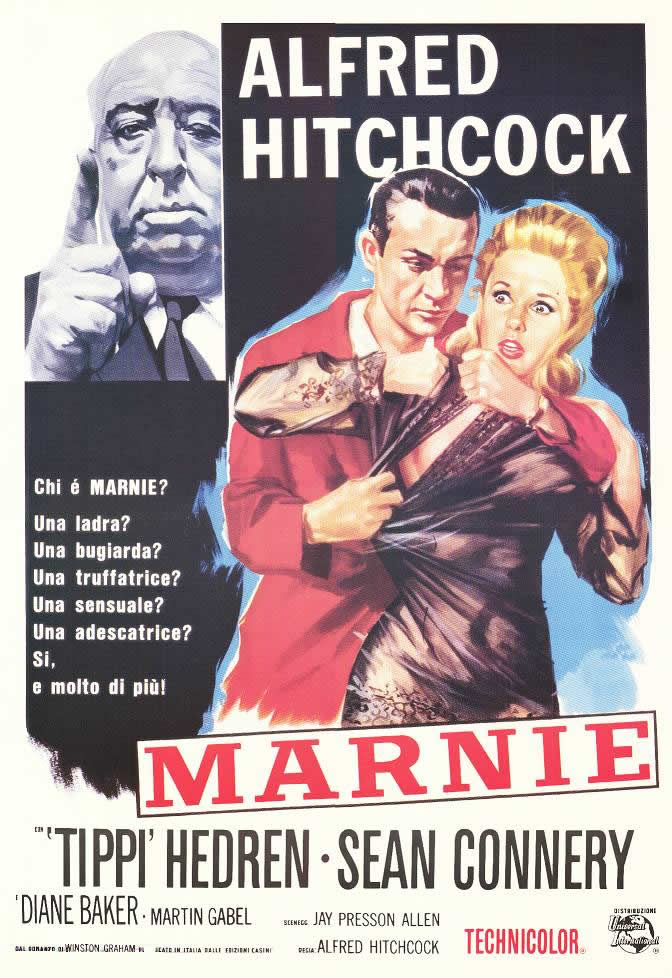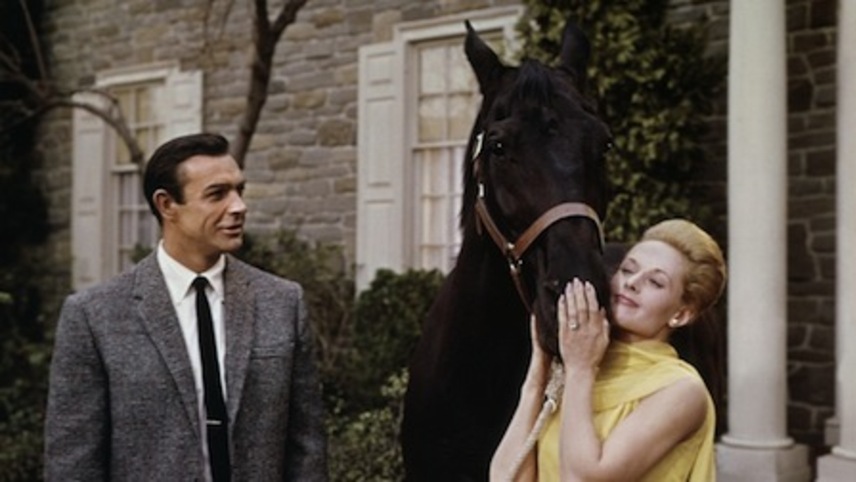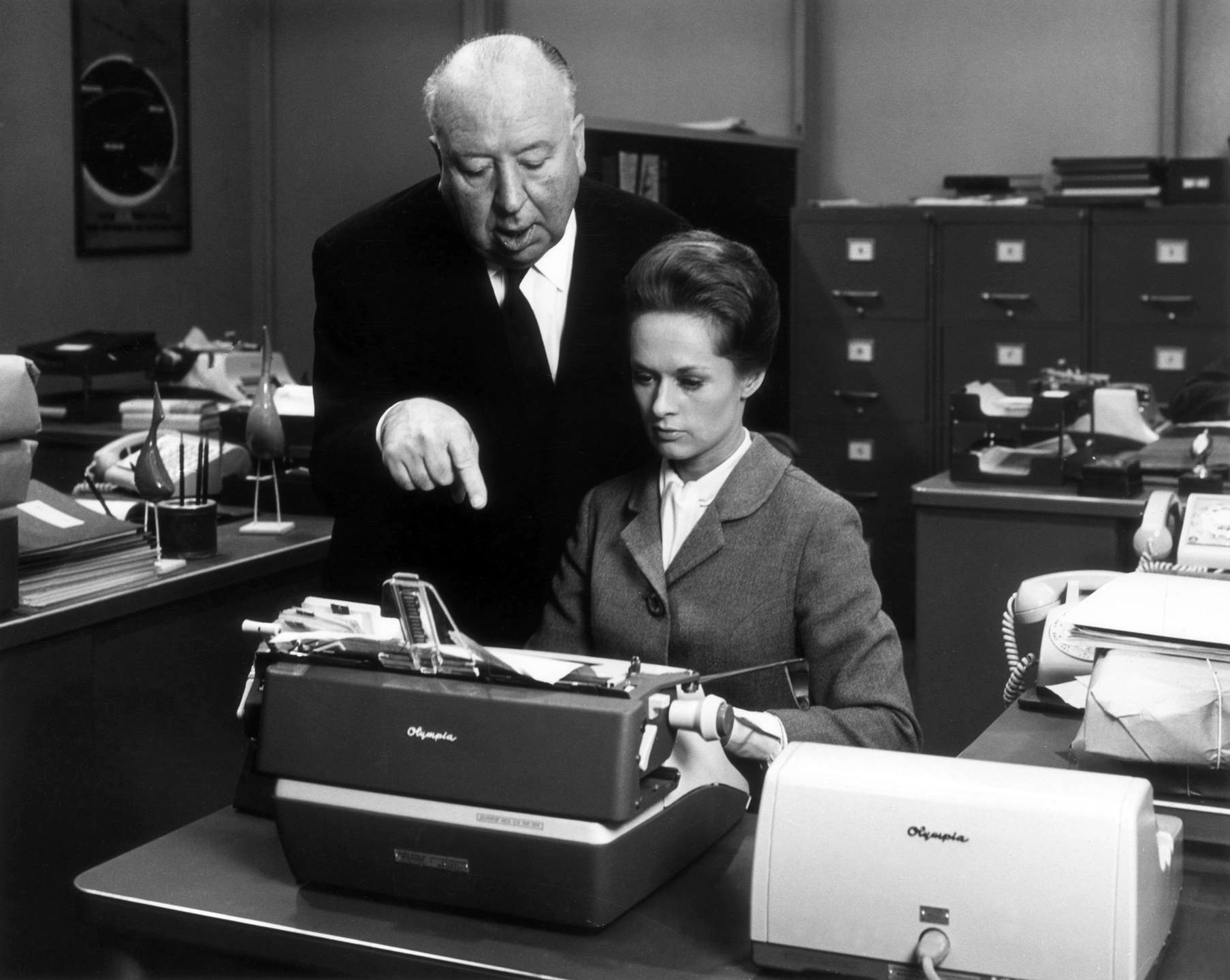Marnie (1964)
 Tuesday, March 3, 2015 at 11:53PM
Tuesday, March 3, 2015 at 11:53PM 
One year after the relatively unique nature thriller The Birds and terrifying horror film Psycho, Hitch comes back to one of his oft-used tropes (though less so than something like his wrong man thriller archetype): the “psychological profile mystery” or something like it. Movies like Suspicion and even Rebecca fit into this mold. I’ve never been extremely fond those films, at least more so than some of his others. Would returning to this common theme after such originality?
The titular Marnie (played by The Birds’ Tippi Hedren) seems to survive in life through stealing from employers and then moving on. However she has some deep rooted issues with her mother, sleeping, and the color red. For decades no one has been able to help her, until debonair James Bond (sorry, actually his name is Mark Rutland, but he’s played by Sean Connery so…) comes along, reads a book and then psycho analyzes the love of his life. Realistic? Not really. Does it matter? Not extremely.
Marnie is supposedly a classic. For those not aware a classic is defined by Google as:
- A work of art of recognized and established value
- A school subject that involves the study of ancient Greek and Latin literature, philosophy, and history
- A major sports tournament of competition, as in golf or tennis

I guess its meant to fit #1. However, my own definition would include iconic, re-watchable, and indispensable, and I really can’t view that in these terms. I’ve only seen it once now and perhaps it needs another viewing, but this doesn’t hold much of a candle to Hitch’s previous works which I do regard as classics, and unfortunately doesn’t bode well for the rest of the films produced afterwards.
Much of the issue has to be attributed to the story, which just doesn’t seem to give this writer much interest. However some major problems also relate to certain special effects, such as the red flashes on screen when Marnie sees red, supposedly personifying her condition when instead it just creates unintentional humor. Other such effects include camera zooms representing her interest in something, backed by Bernard Hermann’s gorgeous yet inappropriate score resulting in me giggling hysterically.
Acting is fine for the most part, especially with Tippi Hedren improving greatly on her debut in The Birds. Also Connery is effective as the debonair businessman who is borderline obsessed with Hedren’s Marnie and at times believable with his dabbling in psychotherapy. However it is Marnie’s mother, played by Louise Latham who is wonderfully realistic, even though she wasn’t that much older than Hedren. Makeup effects being what they were with Latham at her age, it’s amazing how effective she is as the old and then young mother (in flashbacks).

The film eventually ends with a fascinating resolution of sorts, but the fact that it was so difficult to see that it was going in this direction made it that much more difficult to watch such a directionless bore. It was at times likeable, but also much a frustrating film all on its own as well as the fact that this is the Master behind it, besides the familiar story territory and production values (though hard to determine a MacGuffin here). One scene of poignant suspense while Marnie attempts to steal money is fairly redeeming, but not necessarily to save the whole movie.
Some call it a standout classic. Right now, I feel like it is a misstep.
 Hitchcock Chaser,
Hitchcock Chaser,  Suspense,
Suspense,  Thriller,
Thriller,  Unintentional Humor in
Unintentional Humor in  Hitchcock Chasers
Hitchcock Chasers 


Reader Comments